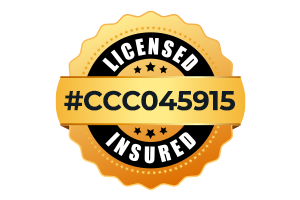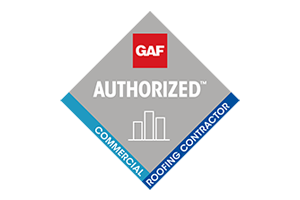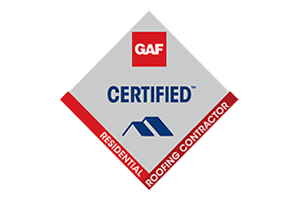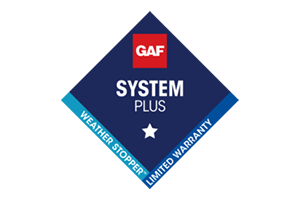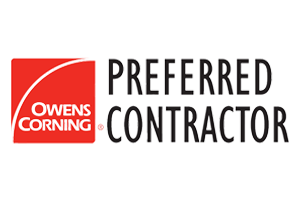Keller Roofing and Inspections has partnered with Wisetack to provide 100% financing for your new roof
Securing new roof financing is a pivotal decision that homeowners face, embodying the intersection of necessity and financial prudence. The importance of a durable, efficiently installed roof over one's head cannot be overstated, yet the costs associated with acquiring this piece of tranquility can be daunting. With the advent of modern financing solutions like Wisetack financing, the question of "can you finance a new roof" has become easier to answer, offering homeowners simplicity, affordability, and peace of mind. This article aims to navigate the often complex terrain of roofing services and financing, shedding light on how to secure a new roof without compromising one's financial stability.
In the forthcoming sections, we will delve into the nuances of evaluating the cost of a new roof, juxtaposing traditional financing avenues with modern solutions such as Wisetack. The focus will then shift to leveraging equity and savings in pursuit of affordability, followed by an in-depth discussion on the simplicity and efficiency offered by services like Wisetack financing. By navigating the financing process with the right information, homeowners can make informed decisions that align with their needs and budgets. This roadmap provides a thorough outline of considerations and options available for new roof financing, ensuring readers are well-equipped to embark on this vital project with confidence.
Evaluating the Cost of a New Roof
Calculating the cost of a new roof involves several factors that homeowners need to consider to make informed financial decisions. The primary components include the type of materials, roof size, and complexity of the design.
Initial Estimate
To begin estimating the cost, homeowners should measure the square footage of their roof. This is done by measuring the length and width of each roof section and summing these measurements [1]. The slope or complexity of the roof also plays a significant role, as more complex designs require additional materials and labor [1]. Material costs vary; for instance, asphalt shingles might range from $4 to $6 per square foot, leading to a total cost between $6,000 and $9,000 for a simple 1,500 square foot roof [1]. More premium materials like standing seam metal could elevate the price from $12 to $19 per square foot, amounting to between $30,000 and $47,500 for larger roofs [1].
A comprehensive table to assist in budgeting for different roof types on a 2,000 square foot home illustrates the potential costs:
Roof Type |
Cost Range |
|---|---|
Lower-end (3-tab asphalt) |
$7,000 - $11,000 |
Mid-range (Metal roofs) |
$11,000 - $24,000 |
Higher-end (Slate tiles) |
$24,000 - $60,000+ |
Long-term Value
Investing in high-quality roofing materials might be more costly upfront but can offer superior durability and longevity, significantly reducing the need for frequent repairs or replacements [2]. For example, metal roofing, while initially more expensive than traditional asphalt shingles, can last up to 50 years or more with minimal maintenance [2]. Additionally, selecting a roofing contractor with proven expertise ensures that the installation is executed correctly the first time, potentially saving money in the long run [2].
Homeowners are advised to consider the warranty and expected lifespan of the roofing materials. Longer warranties and greater lifespans can justify a higher initial cost, making it a wise long-term investment [2]. Moreover, features like good insulation and reflective properties can lower heating and cooling costs, adding to the long-term savings [2].
For specific terms related to financing and additional details, homeowners should call their chosen roofing service provider. This step ensures that all financial aspects are clearly understood and tailored to their specific needs.
Traditional vs. Modern Financing
In the realm of roof financing, homeowners are presented with a spectrum of options ranging from conventional loans to more contemporary alternatives. Each type of financing solution offers distinct advantages and considerations.
Conventional Loans
Conventional loans, primarily sourced from traditional banking institutions such as commercial banks and credit unions, are characterized by their rigorous application processes. These loans often require comprehensive financial documentation, credit checks, and collateral, making them a more secure option for lenders [3]. Homeowners seeking conventional loans must meet high eligibility criteria, including stable income, good credit scores, and often, the provision of collateral. This traditional route offers competitive interest rates for those who qualify, potentially making it a more cost-effective option in the long run [3].
Alternative Finance Options
On the other hand, modern financing methods have emerged, providing homeowners with greater flexibility and accessibility. Third-party loans from non-bank financial institutions like online lenders and peer-to-peer platforms offer a more lenient approach to financing. These loans are particularly beneficial for individuals with less-than-perfect credit, as they typically have more relaxed eligibility requirements [3]. The application process for third-party loans is often expedited, allowing for online applications and quick funding, which can be crucial for urgent roofing needs [3].
Moreover, alternative financing options may not always require traditional forms of collateral, thus reducing the risk for homeowners. However, it is important to note that these loans might come with higher interest rates and fees due to the increased risk taken on by the lenders [3].
For homeowners exploring these financing avenues, it is crucial to understand all terms and conditions associated with each option. Consulting with financial experts and comparing different offers can help in making an informed decision that aligns with one's financial situation and roofing needs. For specific terms related to financing options, homeowners should contact their chosen roofing service provider or financial institution directly.
Using Equity and Savings
Homeowners considering new roof financing can explore using their home equity or personal savings to manage costs effectively. This section discusses the advantages of Home Equity Lines of Credit (HELOC) and Personal Savings Plans as viable financing options.
Home Equity Lines of Credit (HELOC)
A Home Equity Line of Credit, commonly referred to as a HELOC, is a flexible credit line secured by the homeowner's property. It functions similarly to a credit card, allowing homeowners to access funds as needed and make payments based on the balance owed. The benefits of a HELOC include lower interest rates compared to personal loans and credit cards due to the security the homeowner's equity provides [4][5].
Typical features of HELOCs include:
- Closing Costs: Generally range from 2% to 5% of the line amount, with many lenders offering no-cost options [4].
- Payment Flexibility: Interest-only payments during the draw period help keep monthly expenses low [4].
- Quick Access to Funds: HELOCs can be processed and closed within weeks, which is beneficial for urgent roofing projects [4].
- Risk of Loss: It is critical for homeowners to understand that failing to meet payment obligations can lead to the loss of their home [4].
Personal Savings Plans
Using personal savings is another approach to financing a roof replacement without incurring debt. Establishing a separate savings account specifically for home improvements, known as a sinking fund, can be a disciplined way to save for a new roof. Homeowners might allocate a fixed amount monthly, allowing them to accumulate the necessary funds over time without impacting their emergency reserves [6].
For those unable to save the full amount before needing a new roof, obtaining a low-interest personal loan could be a more suitable option, especially for those with high credit scores [6]. This strategy avoids the substantial closing costs associated with refinancing a mortgage and preserves emergency funds for true unforeseen emergencies [6].
For detailed terms regarding HELOCs, personal loans, or other financial products, homeowners should contact their financial institution or roofing service provider directly. This ensures a clear understanding of all financial commitments involved.
Navigating the Financing Process
Applying for Loans
When seeking financing for a new roof, homeowners have several loan options available. Personal loans are a popular choice, offering the advantage of lump-sum disbursement and fixed-rate monthly installments [4]. These loans can range from $1,000 to $100,000, depending on credit scores and loan terms, and are typically processed quickly, sometimes providing cash in as little as one business day [4]. For those considering using their home's equity, home equity loans provide a fixed amount of money secured by the home and are repaid in a manner similar to a mortgage, usually offering lower interest rates than personal loans [7].
Approval Timelines
The approval process for these loans varies significantly between financial institutions. For instance, exploring loans from banks or credit unions involves an approval process that assesses an applicant's creditworthiness, which can impact the terms and interest rates of the loan [8]. It's crucial for homeowners to shop around and compare different loan options to secure the best rates and terms [7].
Disbursement of Funds
Once approved, the disbursement of funds can also vary. Personal loans are typically disbursed as a single lump sum, allowing homeowners to manage their roofing project immediately [4]. In contrast, home equity loans might offer a draw period where funds can be accessed as needed, providing flexibility in funding ongoing roofing expenses [8].
For homeowners who need immediate repairs and lack the necessary funds or home equity, some roofing companies offer direct financing or through third-party vendors, simplifying the process by handling most steps in-house [7]. This can be an attractive option for those seeking a straightforward and expedited financing solution.
Homeowners should always verify the terms and conditions of any financing option by contacting their chosen roofing service provider or financial institution directly. For specific terms related to financing and additional details, homeowners are encouraged to call their chosen service provider [7].
Conclusion
Navigating the complexities of financing a new roof has been demystified, with a comprehensive exploration of costs, financing options, and pragmatic approaches to funding. From understanding the initial investment required for different roofing materials to comparing traditional and modern financing avenues, this article has laid out a thorough roadmap for homeowners. Emphasizing the balance between immediate needs and long-term financial health, it illustrated how leveraging home equity or personal savings could offer sustainable solutions without compromising financial stability.
In the journey toward securing a reliable and financially feasible roofing solution, the significance of making well-informed decisions has been underlined. Whether opting for a conventional loan, exploring modern financing alternatives like Wisetack, or utilizing personal savings, the article highlighted the importance of considering all factors to ensure that the chosen financing path aligns with individual financial scenarios and roofing requirements. For homeowners seeking clarity on specific terms or needing further guidance, reaching out directly to roofing service providers or financial institutions is encouraged. Embarking on this venture with a clear understanding and careful planning paves the way for achieving peace of mind with a secure and financially sound roofing project.
FAQs
What is the minimum credit score required to finance a roof?
The minimum credit score required for roof financing varies by lender and the type of financing. Generally, a credit score of at least 670 is preferred for personal loans, although some lenders may accept scores as low as 580.
Is it possible to finance a roofing project in Florida?
Yes, in Florida, you can finance various roofing projects, including large repairs, new extensions, or complete replacements. Sun Coast Roofing & Solar, as a Certified Contractor, offers financing options through Hearth Financing, which provides a variety of loan choices and a quick approval process.
What is the typical lifespan of different roofing materials?
The longevity of roofing materials can vary significantly. Slate, copper, and tile roofs can last over 50 years. Wood shake roofs typically last around 30 years, fiber cement shingles about 25 years, and asphalt shingle/composition roofs approximately 20 years, according to the National Association of Home Builders (NAHB).
What are the options for financing a new roof in Canada?
In Canada, there are several financing options for roof replacement. These include utilizing your Homeowners Insurance Policy, using Credit Cards, obtaining a Personal Line of Credit, securing a HELOC (Home Equity Line of Credit) or Home Equity Loan, applying for an FHA Title 1 Loan, exploring other Government financing options, or considering Roof Financing available at Home Improvement Stores.
References
[1] - https://www.roof-crafters.com/learn/calculate-cost-roof-replacement-comprehensive-guide
[2] - https://www.absoluteroofingcompany.net/cost-vs-value-analyzing-roofing-investments/
[3] - https://rescue-my-roof.com/blog/3rd-party-vs-bank-loans/
[4] - https://www.lendingtree.com/home/home-equity/how-to-finance-a-new-roof/
[5] - https://www.fool.com/the-ascent/personal-loans/how-to-finance/roof/
[6] - https://www.tampabay.com/news/business/2019/10/07/dear-penny-should-we-use-our-emergency-savings-to-pay-for-a-new-roof/
[7] - https://myroofhub.com/pricing/roof-payment-financing-options/
[8] - https://amstillroofing.com/blog/how-to-pay-for-a-new-roof-financing-made-simple/

